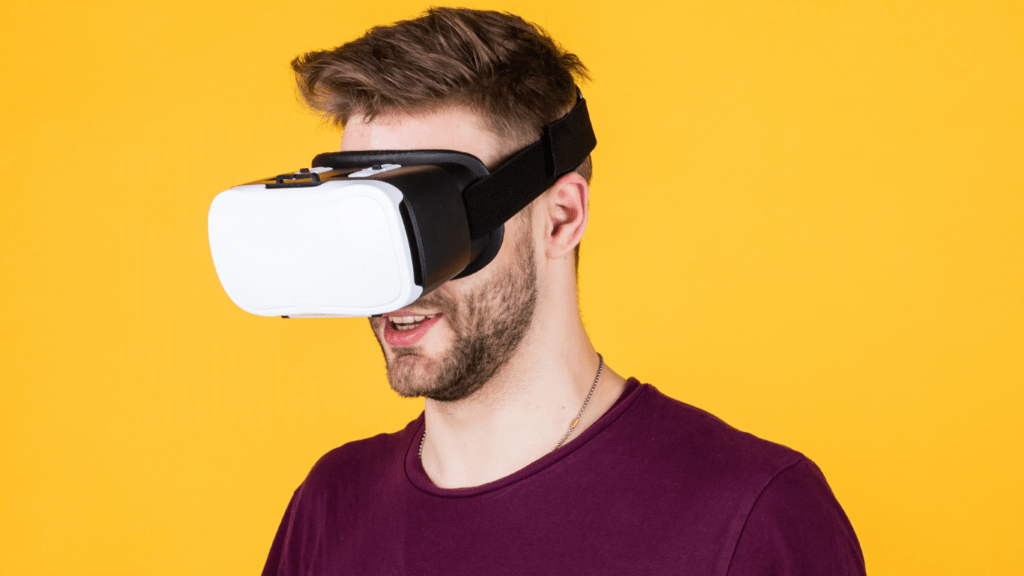Evolution of Technology in Gambling
Gambling has come a long way since the days of physical casinos and paper betting slips. The digital revolution has expanded access to gambling while enhancing the overall experience for players. This section explores key innovations shaping the industry.
Online Casinos
Online casinos offer convenience and accessibility that traditional venues can’t match. With internet connectivity, players access favorite games from anywhere. Real-time interaction and live dealers simulate the casino atmosphere, maintaining engagement.
Mobile Gaming
Smartphones have taken gambling to another level. Mobile apps provide seamless access to games and betting platforms. According to Statista, the global mobile gaming market reached $77.2 billion in 2020. Players enjoy various games—from slots to poker—on mobile devices, increasing overall engagement.
Virtual Reality
Virtual Reality (VR) transforms online gambling into an immersive experience. VR casinos offer players a 3D environment, replicating the physical casino ambiance. Users interact with slot machines, tables, and other players, making it a highly engaging option.
Blockchain Technology
Blockchain enhances transparency and security in gambling transactions. Cryptocurrencies like Bitcoin and Ethereum offer anonymous, secure payment methods. Smart contracts ensure fair play by automating payouts and preventing fraud.
Artificial Intelligence
Artificial Intelligence (AI) personalizes user experience and ensures fair play. AI algorithms analyze player behavior to offer tailored game suggestions, enhancing satisfaction. Fraud detection systems powered by AI identify and mitigate suspicious activities, boosting trust in online platforms.
Live Streaming
Live streaming has revolutionized sports betting. Real-time broadcasts allow players to place bets as events unfold. Platforms combine streaming with interactive elements, such as chat rooms and real-time statistics, enhancing the betting experience.
Conclusion
Technology continues to reshape the gambling industry, offering new ways to play and bet. It enhances player engagement, ensures security, and provides personalized experiences. As these trends evolve, the gambling landscape becomes more innovative and accessible.
Online Casinos
Online casinos have revolutionized the gambling industry. The industry’s growth and popularity can be attributed to technological advancements that have enhanced user experiences.
Growth and Popularity
Online casinos have seen exponential growth over recent years. According to Statista, the global online gambling market was valued at $66.7 billion in 2020 and is projected to reach $92.9 billion by 2023. Factors like internet accessibility and increased smartphone usage contribute to this surge. Online platforms offer a variety of games like slots, poker, and blackjack, which attract diverse audiences. For example, Betway and 888 Casino provide both traditional games and innovative features, broadening their appeal.
Innovations in Online Gaming
Technological innovations have significantly transformed online gaming. Live dealer games bring the traditional casino experience to users’ screens through high-definition streaming, making the interaction more realistic. Virtual Reality (VR) casinos take this a step further by offering immersive gaming environments where players can walk around and interact with elements. Blockchain technology ensures transparency and security by enabling provably fair gaming. Platforms like BitStarz use cryptocurrencies for transactions, enhancing user privacy. Lastly, Artificial Intelligence (AI) analyses player behavior to create personalized gaming experiences, as seen in AI-driven recommendations on platforms like LeoVegas.
Mobile Gambling
Mobile gambling has revolutionized the industry by providing players instant access to their favorite games from anywhere.
Rise of Gambling Apps
Mobile gambling apps have surged in popularity. In 2021, there were over 1.6 billion mobile gambling app downloads (Statista). These apps offer a variety of games like slots, poker, and sports betting. Betway, 888 Casino, and LeoVegas have optimized their platforms for mobile users, making gameplay smooth and engaging. Players now enjoy the convenience of placing bets on live sports or spinning slot reels while on the go.
Mobile User Experience
Mobile user experience focuses on seamless navigation, quick load times, and responsive design. Developers prioritize these aspects to ensure users have an enjoyable experience. Features like touch ID and facial recognition add an extra layer of security alongside easy logins. AI-driven recommendations and personalized interfaces keep players engaged. Platform-specific design ensures apps run optimally on both iOS and Android, reducing lags and crashes.
Virtual Reality and Augmented Reality

Virtual Reality (VR) and Augmented Reality (AR) are revolutionizing the gambling industry by offering immersive experiences.
Immersive Gaming Experiences
VR allows players to enter a 3D casino, where they can walk around, interact with other players, and play games in a realistic environment. For example, VR casinos like SlotsMillion provide a wide range of slots and table games in a fully immersive setting. Enhanced features include realistic graphics and spatial audio, enhancing the user’s gameplay.
AR, on the other hand, overlays virtual elements onto the real world. This technology enriches live casino experiences by adding virtual dealers or game elements to a player’s actual environment. It also allows for interactive tutorials, which help beginners understand various games right in their living rooms.
Case Studies and Examples
Stakeholders are actively integrating VR and AR to stay competitive. PokerStars VR offers an engaging poker experience with lifelike avatars and interactive environments. Players can communicate using voice chat, adding a social dimension to the virtual game.
Another example is the Mr Green’s Live Beyond Live casino, which combines VR and AR to bring a live casino experience to users wherever they are. It uses a virtual lobby where players can choose tables and games while interacting with live dealers.
These case studies show that VR and AR aren’t just enhancing user engagement; they’re pushing the boundaries of what’s possible in online gambling.
Blockchain and Cryptocurrencies
Technology is reshaping the gambling industry, with blockchain and cryptocurrencies leading the charge.
Impact on Security and Transactions
Blockchain offers increased security for transactions, reducing the risk of fraud. This technology records each transaction on a public ledger, making it transparent and immutable. Players trust this system since it provides clear data trails and eliminates the need for third-party verification. Fast, secure transactions are essential in gambling, and blockchain ensures this by enabling instant fund transfers.
Popular Cryptocurrencies in Gambling
- Several cryptocurrencies have become popular in the gambling industry.
- Bitcoin, as the most widely recognized, offers secure and anonymous transactions.
- Ethereum allows for smart contracts, automating processes like payouts without manual intervention.
- Litecoin is valued for its faster transaction times, making it suitable for frequent gamblers.
- These cryptocurrencies are accepted by many top gambling platforms, including BitStarz and 888 Casino.
By embracing blockchain and cryptocurrencies, gambling platforms are providing enhanced security and streamlined transactions.
AI and Machine Learning
Artificial intelligence (AI) and machine learning (ML) are revolutionizing the gambling industry and introducing new standards of operation across online platforms.
Personalized Player Experiences
AI-driven algorithms create personalized player experiences, enhancing engagement. These algorithms analyze player behavior, preferences, and betting patterns. For example, if a player frequently bets on blackjack, the platform might recommend blackjack tournaments or new variations. This data-driven approach provides tailored game suggestions, promotions, and rewards, keeping players invested and satisfied.
Fraud Detection and Prevention
ML models enhance fraud detection and prevention in online gambling. These models analyze vast amounts of data to identify suspicious activities or irregular patterns. If a player suddenly shifts to high-stakes betting or exhibits unusual winning streaks, the system flags it for further investigation. This proactive approach helps operators maintain a secure environment, ensuring player trust and integrity in gaming.
Social and Responsible Gambling
Technology’s role in gambling extends beyond entertainment. It’s crucial in promoting social and responsible gambling practices, ensuring player safety and well-being.
Tools and Features for Responsible Gambling
Online platforms and mobile apps offer a variety of tools for responsible gambling. Limit-setting features let players control their spending, time, and daily betting limits. Cool-off periods provide temporary account suspension, allowing players needed breaks. Self-exclusion options enable players to ban themselves from gambling sites for extended durations.
Personalization through AI helps identify risky behavior. Real-time monitoring systems flag unusual betting patterns, allowing intervention before issues escalate. Many platforms send notifications to players exceeding their set limits or exhibiting problematic behaviors. GamCare and GambleAware are examples of organizations leveraging technology to support responsible gambling.
Impact of Technology on Addiction and Recovery
- Advanced technology aids in identifying and managing gambling addiction. AI and machine learning algorithms analyze user behavior, predicting potential addiction risks. By detecting irregular patterns, tech-driven platforms can recommend early interventions.
- Virtual therapy sessions offer accessible support for those seeking help. Apps provide self-help tools, counseling, and peer support communities for continuous assistance. Blockchain ensures transparency and security in transactions, preventing deceitful practices that can exacerbate addiction.
- Online recovery resources create tailored plans and track progress. Platforms like Gambling Therapy offer multilingual support, making recovery accessible worldwide. Responsible gambling measures integrated with these technologies significantly reduce addiction risk and enhance recovery outcomes.



 Alanns Ritcheyers – Author
Alanns Ritcheyers is a skilled author at Smart Gamble Land, known for his expertise in winning techniques and the art of gambling strategy. With a keen focus on teaching advanced betting systems, Alanns' content is tailored to players eager to refine their approach to gambling. His methodical breakdowns of complex systems are designed to make challenging concepts accessible to a wide audience. Alanns is dedicated to helping players maximize their potential at the casino by blending strategy with practical tips for real-world application.
Alanns Ritcheyers – Author
Alanns Ritcheyers is a skilled author at Smart Gamble Land, known for his expertise in winning techniques and the art of gambling strategy. With a keen focus on teaching advanced betting systems, Alanns' content is tailored to players eager to refine their approach to gambling. His methodical breakdowns of complex systems are designed to make challenging concepts accessible to a wide audience. Alanns is dedicated to helping players maximize their potential at the casino by blending strategy with practical tips for real-world application.
